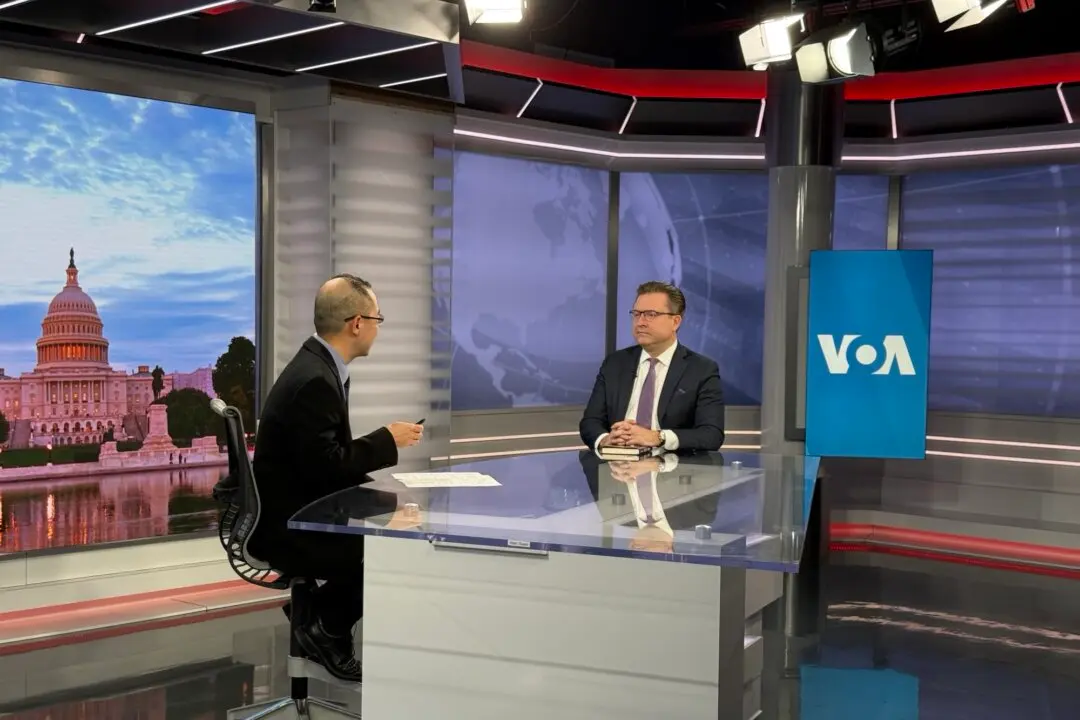NEW YORK—Mayor Bill de Blasio places a lot of trust in Anthony Shorris to run day-to-day operations at City Hall. As first deputy mayor and de Blasio’s right-hand man, Shorris describes his days as being full of “endless bureaucratic hurdles,” but working them out is something he’s very comfortable with.
Shorris discussed the mayor’s progressive agenda and how the budget reflects that agenda at a forum hosted by Crain’s New York Business on Monday. The mayor has set many ambitious goals and run into criticism, as well as public relation pitfalls, but “I think we’re in a pretty credible place,” Shorris said.
While details for many items on de Blasio’s agenda have yet to materialize, Shorris suggested that the mayor’s decision to drop the stop-and-frisk appeal and his push for universal pre-K indicate that he will push hard for his priorities.
While the preliminary budget does list a surplus, there are a number of uncertainties. One, of course, is the unsettled labor contracts still in negotiations.
The Independent Budget Office’s wide estimate for what the contracts would cost the city, $500 million to $7 billion, has some concerned. But the administration has said the negotiations would be respectful, which means they stay private, Shorris said.
“I’m anxious to get that behind us both because of the financial stability that comes with it, but also so we can get on with the rest of the agenda,” said Shorris.
The other uncertainty is whether funding for universal prekindergarten and after-school programs will get the kind of state support the administration wants.
Education
Shorris has confirmed the administration is not opposed to using state funds for universal pre-K, but stresses the issue is having the money be stable year to year.
Shorris notes the state now recognizes the importance of funding, but there is still a “residual unfairness” in the state funding system.
Shorris also tried to dispute the portrayal of the mayor being against charter schools, which he said represent only about 5 percent of the student population.
“We have to face a big problem—charters can help us do that both by providing better education for some kids, but also by teaching us good tools to make the 95 percent better,” Shorris said, referring to public school education.
The demand for charter schools comes from the public school system failing, Shorris said.
Development Projects
De Blasio has set an ambitious goal of creating or maintaining 200,000 units of affordable housing, with a plan to be released May 1. What incentives and when they could be implemented are issues still up in the air.
Shorris said mandatory inclusionary zoning, which would require all new residential developments to include an affordable housing component, would only be one of the many options the administration would consider.
The administration has touted the Domino Sugar development deal in Williamsburg as an example of success—developer Two Trees agreed to build 700 affordable apartment units in exchange for being allowed to build 20 stories higher than what zoning allows.
In working with developers, the mayor has also said he wants to require that city-subsidized developments provide living wages.
That would mean paying all employees at least $10-an-hour with benefits, or $11.50 without, which has halted projects in the city before. In a city-subsidized development, paying a living wage would not be a problem, Shorris said.
The ultimate goal is to raise the minimum wage, Shorris explained.
“But in the event that doesn’t happen, we need to take every action that we can.”





